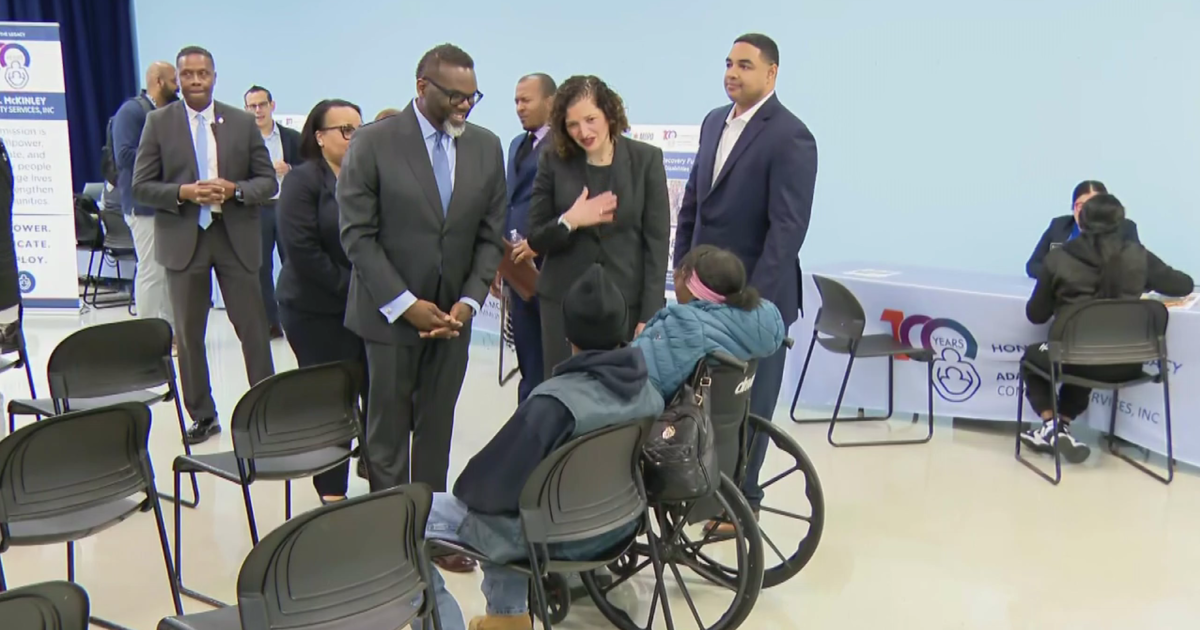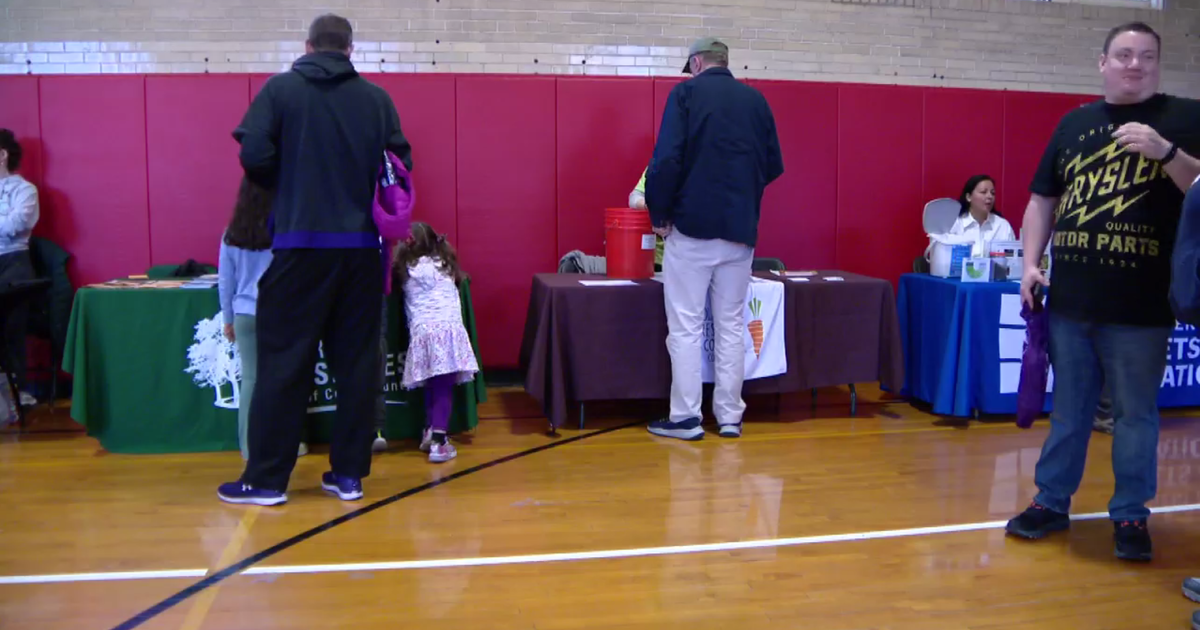Aldermen Approve Revised Plan To Close Loophole In Anti-Puppy Mill Ordinance Restricting Sales Of Dogs, Cats, And Rabbits At Pet Stores
CHICAGO (CBS) -- After months of delays, aldermen have advanced a proposal designed to close a loophole in the city's ordinance banning pet stores from selling animals that come from so-called "puppy mills" by essentially setting up fake rescue organizations.
Chicago's puppy mill ordinance prohibits retailers from selling dogs, cats, or rabbits that do not come from government-run animal shelters, private humane societies, or animal rescue groups. The goal of the ordinance was to prevent businesses from getting their dogs and other animals from so-called puppy mills, large-scale commercial breeders often criticized for housing animals in inhumane and unsanitary conditions.
However, Ald. Brian Hopkins (2nd) and several anti-cruelty groups said some pet stores circumvented the ban on selling animals from large-scale for-profit breeders by setting up fake non-profits as front organizations posing as rescue groups.
Last July, the City Council Committee on Health and Human Relations approved an amendment to the puppy mill ordinance by banning pet stores from having any ownership or financial interest in animals they display for adoption.
However, that ordinance was never called for a vote by the full City Council, as Hopkins and supporters of the proposal tried to work out a compromise with opponents.
On Monday, the Health and Human Relations Committee approved a new version of Hopkins' proposal which removed a provision targeting so-called "backyard breeders" and "hobby breeders," such as people who breed puppies for dog shows.
"Our intention is to target the large-scale commercial breeding operations that engage in the horrific and inhumane practice of treating dogs as though they were agricultural products instead of pets that we all know and love," Hopkins said.
Hopkins' proposal would allow backyard breeders and other non-commercial breeding operations to continue in Chicago.
Pet shops would be allowed to provide space to animal shelters or rescue organizations to display dogs, cats, and rabbits for adoption for a "nominal adoption fee." However, the stores may not have any financial interest in the shelter or rescue group, and the shelters and rescue groups they partner with also may not have any affiliation with for-profit breeders or pet brokers.
The revised puppy mill ordinance would define an animal rescue group as "any nonprofit organization with tax exempt status under 501(c)(3) of the IRS code, whose mission in practice is the rescue and placement of dogs, cats, and rabbits."
Hopkins said that would not include large-scale commercial breeders, or any person or business that obtains animals from a commercial producer, facilitates the sale at a profit of animals from a commercial producer, has common personnel with a commercial producer (including employees, managers, or board members), or is an affiliated business of a commercial producer as defined by state law.
"All this does is it prohibits the phony shell organizations that have been formed by people affiliated with the commercial breeders so that they could claim that their animals are rescue animals, not in fact the product of a commercial breeder," Hopkins said.
Hopkins said even the best of such commercial breeders still keep hundreds of animals in small cages without human companionship, and puppies as livestock instead of pets.
"It's unacceptable to treat domestic dogs as if they were cattle, or hogs, or chickens, or any other agricultural-based livestock; and that is what is happening at even the best commercial breeders. It is not the way to raise domestic pets," Hopkins said.
Critics have said puppy mills leave animals in filthy conditions, and disregard dogs' health to maximize profits by repeatedly breeding litters from the same mothers.
"They're not played with. They're not walked. They're not even named. They're given numbers. The sole purpose of these animals is to produce a profit," Hopkins said.
Marc Ayers, Illinois state director for Humane Society of the United States, said the existing loophole in the puppy mill ordinance has been exploited by three Chicago stores which continue to import puppies from commercial breeders.
"We see them importing these puppies – eight-week-old puppies – time and time again into their store," Ayers said. "There are dozens and dozens of legitimate shelters and rescues that have endorsed this proposal, because they are not housed on the premise of their dog breeder or broker. They are not exchanging payment from a breeder or broker. Legitimate rescues do not do that."
However, Curt Fiedler, a lobbyist for suburban pet stores Happiness Is Pets and Furry Babies, which are interested in opening stores in Chicago, said there are many breeders who partner with pet stores to sell puppies and other animals.
"For anybody to say that responsible breeders do not work or sell to pet stores is demonstrably false," he said.
Fiedler argued Hopkins' proposal won't solve the problem of puppy mills.
"It is not solving your problem by shutting down pet stores. You're actually worsening the problem because you're not dealing with those entities that are actually providing the puppy mill puppies into the city of Chicago," he said.
Lane Boron, owner of Pocket Puppies, one of three Chicago pet stores repeatedly accused of circumventing the city's puppy mill ordinance, said he works with about 20 breeders, but claimed none of them are large-scale puppy mills.
"They are not large breeders, they're good breeders. I have worked with them personally," he said. "I deal directly with my breeders. … I've visited these breeders, most of them – there's a few I haven't – to make sure they come from good backgrounds."
The committee approved Hopkins' proposal over the objections of Ald. Raymond Lopez (15th) and three other council members who are backing a different proposal that would allow pet stores to sell animals from some licensed breeders, but would also set strict standards for how breeders must operate.
The full City Council will consider Hopkins' proposal next week.



